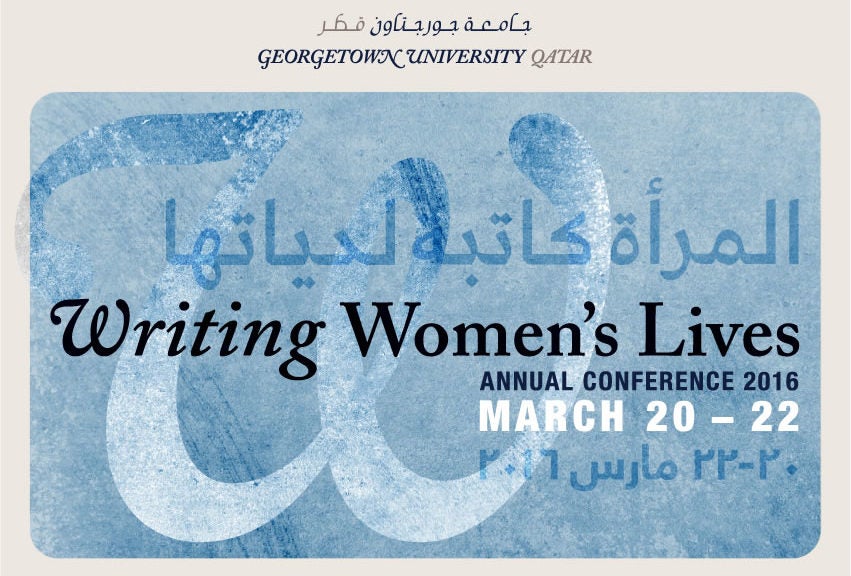Georgetown Challenged Gender Assumptions with “Writing Women’s Lives” Conference

Georgetown University in Qatar’s annual faculty research conference titled “Writing Women’s Lives” was a two-day conference that brought together renowned scholars and emerging thinkers from universities and institutions around the globe involved in gender studies. This year’s event placed a spotlight on the lived realities and experiences of women in the wake of tremendous global change in culture and technology in the 21st century, with a focus on the developing world.
Commenting on the change in focus of the conference, from traditional research approaches to the current theme, Dr. Amira Sonbol, professor of history at GU-Q and member of the conference committee that organized the event, said: “To date, the vast majority of research on gender has focused on writing about women as victims. We have all been studying ‘the woman problem’, especially in the Middle East. In this conference we are more interested in seeing women as actors, as participants in their societies’ economic production and social dynamics, and how they’re involved in decision-making in their day-to-day life.”
She added that this paradigm emphasis in the debate on gender studies is particularly important from the perspective of government policies. “If you’re going to change laws that impact women, such as protecting women’s rights or ensuring equitable salary structures, we have to flush out what women really do so that the laws can catch up to lived realities. This is a more empowering approach to women’s studies, and we believe this kind of research will help to uncover realities about the role of women in the home, or at work, or in any space. We want to shed light on what has been lost in the study of women.”
Starting at 9:00 AM, the first day’s panel was a discussion on new approaches to researching women’s issues. Subsequent panels for the first day included “Negotiating (il)legality: Law & the State”; “Lives, Livelihoods and Land”; and a panel comprised entirely of current GU-Q students to discuss “Gendered Violence, Citizenship and the State”.
The second day featured panels titled: “Lives of Contestation; Politics of the Body”; “(In)visible Women; The Aesthetics of (Re)presenting Women”; and an evening entitled “Hakawi Sharing Experiences in Storytelling”, where participants and members of the public who registered to attend had a chance to explore the conference topics in a casual atmosphere. The gathering also remembered the famed Moroccan writer and sociologist Fatima Mernissi, who is best known for her pioneering work in the field of Islamic feminism.
Following the conference, an archival workshop on the third day featured the High Council for Scientific Research, Spain, titled “Writing Women’s Lives in Historical Perspective”, where more light was shed on aspects of the daily lives of women during the Arab civilization in the Iberian Peninsula and ended with a Qatar University panel organized by renowned scholars in the field of women studies titled “Rupture and Continuum in Arab Women’s Lives.” The last two panels particularly aimed to focus the discussion on the Islamic and Arab worlds.